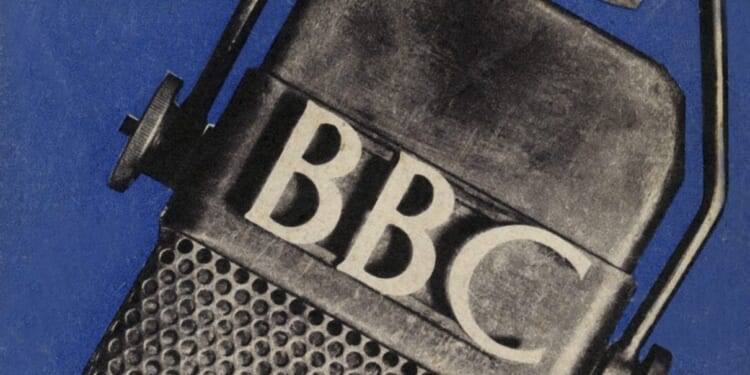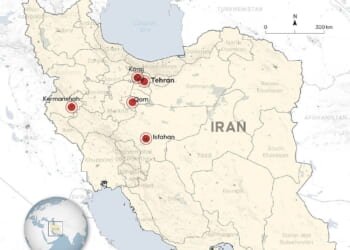There’s something ironic about being criticised for bias in these postmodern times. Bias implies the possibility of truth, and truth as a concept is becoming increasingly discredited. The very word “disinterested” is no longer used accurately. Most people probably think it means “a lack of interest” rather than “impartial”. All this is partly because the truth is generally unpleasant, but also because we live in a society which values egalitarianism. So to tell someone that their viewpoint is untrue is supposedly to demean them as a person, refusing them equal status with those whose points of view are right. We are en route from the belief that everyone has a right to express their beliefs, a doubtful proposition anyway, to the more militant case that every belief is correct because it reflects how someone deeply, authentically feels. It’s a form of radical individualism which reflects the lack of community and consensus in modern civilisation. In the age of modernity, we can’t even agree on the most fundamental questions, a situation that ancient societies would have found extraordinary.
There are, believe it or not, people who actually hold the bizarre position that every viewpoint is true. If you happen to bump into one of them, all you have to do is to ask them whether they believe that the viewpoint that not all viewpoints are correct is also true. The logic of their own position, in short, should compel them to abandon that position. You can be pretty sure, however, that they won’t. They’re more likely to say, “Well, that’s true for you, but not true for me”. This might make sense if we’re talking about whether Schoenberg is a finer composer than Mahler, but not if we’re talking about whether there’s a country called Iraq, or whether eating certain kinds of mushroom is likely to poison you. You can be deeply, authentically convinced that William Hague is an alien and still be wrong. Truth isn’t about how you feel, which is another reason why it’s unpopular in a society which elevates sentiment and sensation over fact. (The last time this happened in British culture on a large scale was in the cult of sensibility of the 18th century.) The phrase “true for me but not for you” doesn’t make sense, at least if we’re speaking about what’s been established as fact. It can’t be true for you but not for me that there was once something called the slave trade, or that there are people who can hum and whistle different tunes simultaneously. There are truths about human subjects, but the truth itself isn’t subjective. It may be a truth about a human subject that I currently have a headache, but I know this only because I have the concept of headache, and know how to apply it to others and myself; and all this is because I participate in a public language in which the concept of headache has a function, and has that function whether I like it or not.
What counts as a fact, to be sure, is a deeply controversial affair, and sometimes impossible to establish. This is the kernel of truth in the postmodern shell. You might regard facts simply as those collective interpretations of the world which happen to have caught on — which are so embedded in what we say and do that it’s currently inconceivable to imagine our way beyond them. This leaves the door open for a future in which “drinking boiling water is a bad idea” is no longer a fact, possibly because we’ve found ingenious ways of insulating our throats from being scalded, or because evolution has taken us beyond such pain altogether. So what’s a fact now won’t be then. On the other hand, you can argue that if it was a fact in ancient Greece that the poetry of Horace was admired, this fact remains true today, even if we ourselves no longer admire it.
If facts are just versions of the world that have caught on, however, why has this happened? Is it just a matter of chance? One plausible answer is that they have caught on because they reflect the way the world is. But the way the world is is itself a matter of interpretation, so there are problems with this response as well. If we’re to establish the truth, we need evidence. We must also be prepared to renounce our version of reality if the evidence strongly suggests that it’s false. This, presumably, is what the BBC tries to do in order to arrive at an impartial assessment of an issue. But the BBC is quite plainly biased on all kinds of subjects. It isn’t impartial when it comes to rape or paedophilia; it detests terrorism and supports the monarchy; it’s opposed to racism and seems oddly to believe that accidentally releasing prisoners is a subject of momentous significance.
“The BBC is quite plainly biased on all kinds of subjects.”
Some of these prejudices seem to me to be splendid, a phrase which some liberals might find discomforting. Isn’t prejudice wrong in itself? This surely can’t be true. To be prejudiced is to hold a negative or positive attitude towards something habitually, so that when you encounter it you already have a certain opinion of it. (The word “prejudice” literally means “pre-judge”.) And this is surely true of almost everyone. Hardly anybody comes to the question of terrorism or the monarchy with an entirely blank mind, completely free of assumptions and value-judgements. We bring the burden of our previous experience unconsciously to bear on these topics, as well as being affected by the moral climate in which we live. There’s no impartiality on matters of racism or paedophilia, and quite rightly so. The problem for the media lies in establishing the facts about such crimes — whether they’ve actually happened, who perpetrated them, how they came about and so on. To be biased in a pejorative sense of the term means not to be morally neutral about the crimes themselves but to distort the evidence concerning them.
We view the world at an angle, and judge it from a certain perspective. God’s-eye standpoints are not to be had, as the phrase itself (“standpoints”) unwittingly suggests. For postmodern theory, all we have is a clash of competing perspectives, like an intellectual version of the marketplace, and those viewpoints that win out become known as the truth. This, however, is to misunderstand the concept of perspective. When I look at a cathedral, I see it from a specific angle; but I’m well aware that there are other vantage points from which it could be viewed, and my own perception of it takes these into account. It’s as though they’re invisibly present within it. I don’t imagine that the Gothic façade I’m seeing is all there is to the building. The same applies to intellectual debate. To have an angle on something is to be aware that other angles are possible, but that doesn’t mean that they’re all of equal value.
In fact, nobody actually believes that any viewpoint on a subject is as good as any other. Nobody holds the opinion that the best way of treating a broken leg is to tickle the patient until he’s squirming hysterically on the floor. Some liberals, however, imagine that every point of view, like every person, is to be respected — not because it’s necessarily true, but because taken together these different standpoints add up to the truth. The truth, as Hegel remarked, is the whole. If our view of the world is distorted, it’s because it’s lop-sided. But this is surely nonsense. One doesn’t arrive at the truth about ghosts by adding the view that they exist to the view that they don’t exist. The liberal case overlooks the fact that different opinions can be in outright conflict. And this, in turn, is because liberals feel uneasy at the idea of conflict. Instead, they tend to insist that all convictions should be respected, a piety which is thoroughly unpleasant. It’s unpleasant because it invites us to respect the beliefs of Himmler and Tommy Robinson. Trying to be nice to everybody just gets you into trouble. You shouldn’t hand Donald Trump and the right-wing press a victory by meekly resigning.
“The fight for the truth is on,” runs a BBC slogan. But so is the fight against bias, and the question is whether the two can be reconciled. One is expected to report the world as it is, without bias or prejudice; but what if the world itself is biased? What if reality is one-sided? If you want to reflect the way things are both accurately and neutrally, then you have a problem when one partner in a struggle has justice on its side and the other doesn’t. If you portray the Israelis and the Palestinians as being equally at fault, you buy your neutrality at the expense of the truth. This, at least, is the case for people known as moral realists. Moral realists maintain that activities like torture and genocide, when they take place, are objective features of the world. They’re not just a matter of what we make of certain events; rather, they are (or can be) facts, as much part of the world’s furniture as Claudia Winkleman or the town of Ramsbottom. In case this sounds too dogmatic, let’s remember that establishing what counts as a fact can be a ferociously complex business. All that’s being asserted is that phenomena like oppression and injustice aren’t just ways of seeing what’s going on, but are as much part of what’s going on as tanks and drones.
To claim that Israel has long treated Palestinians with gross injustice is to state what one considers to be a fact. We aren’t speaking here of opinions. If the claim is mistaken, then one needs to be shown why this is not a fact — why one’s evidence is flawed and partial, one’s reasoning is in error and one’s judgement is biased in all the most negative ways. If this can be successfully argued by an adversary, then one is bound to abandon one’s claim. If the claim is just, however, it means that the truth itself in this particular matter is one-sided. And how then is one to report it accurately without bias?

















